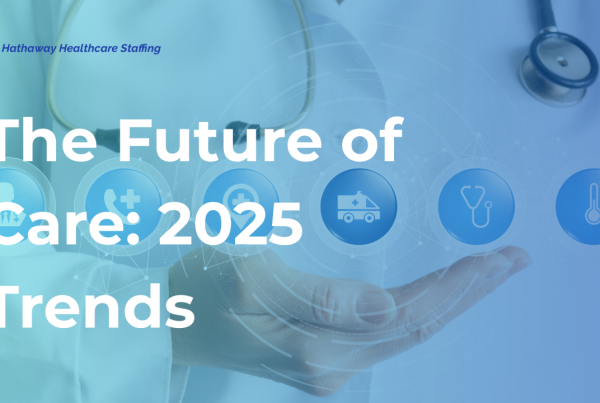Healthcare is evolving at a remarkable pace, with technology driving breakthroughs that could redefine how we diagnose, treat, and manage health. As we approach 2025, artificial intelligence (AI) and cutting-edge medical devices are set to reshape the industry. Here are five innovations poised to make a significant impact.
1. AI-Powered Diagnostics and Imaging
By 2025, AI will be deeply embedded in medical diagnostics, enhancing the speed and accuracy of disease detection. Advanced deep-learning algorithms will analyze medical images—such as X-rays, MRIs, and CT scans—with an unprecedented level of precision. These AI systems will help physicians identify conditions like cancer and neurological disorders more efficiently than traditional methods. AI’s ability to detect intricate patterns that may escape the human eye will lead to faster, more accurate diagnoses and improved treatment plans.
2. Genomics-Driven Personalized Medicine
Precision medicine is expected to expand further, tailoring treatments based on each patient’s unique genetic profile. By leveraging genomic data alongside AI, doctors will be able to craft highly personalized therapies, particularly for complex illnesses such as cancer and rare genetic disorders. AI-powered tools will aid in predicting a patient’s response to medications, allowing for more effective treatments with fewer side effects. This advancement could significantly reduce trial-and-error approaches, optimizing patient care.
3. Wearable Health Tech and Continuous Monitoring
Wearable health devices will move beyond fitness tracking, becoming vital tools in chronic disease management and preventive care. These smart devices will monitor key health metrics in real time, helping detect early warning signs of conditions like heart disease, diabetes, and respiratory disorders. AI-driven data processing will enable physicians to make timely, informed decisions, improving intervention strategies and reducing hospitalizations. By integrating wearables into daily healthcare routines, patients will have greater control over their health, benefiting from personalized and proactive medical support.
4. Expansion of Telemedicine and Virtual Care
Telemedicine, which gained momentum during the COVID-19 pandemic, will continue to grow in 2025. Enhanced digital health platforms will simplify patient access to medical professionals, making virtual consultations, follow-ups, and check-ups more convenient. AI-driven chatbots and digital assistants will assist with administrative tasks, health screenings, and even mental health support. This technology has the potential to expand healthcare accessibility, particularly in underserved or remote areas, eliminating obstacles to medical care.
5. Robotics and Minimally Invasive Surgery
Robotic-assisted surgery is set to transform medical procedures, introducing more advanced, minimally invasive techniques. AI-powered robotic systems, guided by real-time imaging, will allow surgeons to perform complex operations with enhanced precision, leading to quicker recovery times and fewer complications. By 2025, robotic surgery will be more widespread, reducing trauma and improving patient outcomes. Additionally, AI-driven robotic rehabilitation systems may aid post-surgical recovery, helping patients regain motor function and mobility.
Conclusion
The healthcare industry in 2025 will be more patient-focused, efficient, and technology-driven than ever before. AI-enhanced diagnostics, personalized treatments, smart health monitoring, and robotic surgeries are set to revolutionize medical care. As technology advances, we can anticipate even more groundbreaking innovations, ultimately improving healthcare accessibility, affordability, and overall well-being worldwide.




